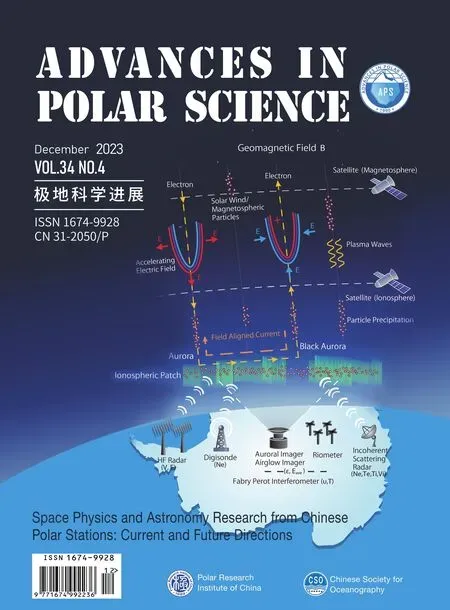Eleven “Opinion Editorials” were published
2024-01-31
Eleven “Opinion Editorials” were published
Opinion Editorials (Op-Ed) was introduced in 2017 as a new category, and is attracting the attention of the international polar community. One scientist from School of Environment, Education and Development, the University of Manchester gave the comments that this is a most welcome initiative.
Op-Ed can be a statement of the opinion of a named author or authors, with a maximum of 1500 words (a maximum length of 2 printed pages). It will provide a forum for comment on the status and/or deficiencies on any aspect of polar science, reflect on recent innovation or progress, promote internationally collaborative polar science projects, etc. It will be directly reviewed by EICs with final decision without peer review by expert referrers. Up to now, elevenOp-Eds have already been published on APS.
(1) Optical remote sensing of snow fraction – status and future prospects (Igor Appel, USA; 2017, Vol. 28, No.4)
(2) Polar science needs a foundation: where is the research into polar infrastructure? (Adrian McCallum, Australia; 2018, Vol. 29, No.1)
(3) Towards truly integrated modeling and observing of marine ice sheets (David Gwyther, Australia; 2018, Vol. 29, No.4)
(4) T-MOSAiC—A new circumpolar collaboration (Diogo Folhas, João Canário, Warwick F. Vincent, Portugal and Canada; 2019, Vol. 30, No.4)
(5) The importance of long-term research and monitoring in the Ross Sea (Bod Zuur, New Zealand; 2019, Vol. 30, No.4)
(6) Arctic environmental change research and Antarctic studies have mutual benefits (Outi Meinander, Finland; 2020, Vol. 31, No. 2)
(7) The SPLASH Action Group – Towards standardized sampling strategies in permafrost science (Frédéric Bouchard et al., France; 2020, Vol. 31, No. 3)
(8) Towards an integrated study of subglacial conditions in Princess Elizabeth Land, East Antarctica (Tang Xueyuan and Sun Bo, China; 2021, Vol. 32, No. 2)
(9) The older ice, the better science (Hou Shugui, China; 2022, Vol. 33, No. 2)
(10) Some thoughts on the development of polar microbial resources (Wang Nengfei, China; 2022, Vol. 33, No. 3)
(11) Constraining the timing of West Antarctic Ice Sheet changes using East Antarctic ice cores (Yan Yuzhen, China; 2023, Vol. 34, No. 1)
杂志排行
Advances in Polar Science的其它文章
- Advances in Polar Science CONTENTS(Volume 34,2023)
- Call for papers: Special Issue on “Novel technologies for sustainable monitoring of polar environment upscaling from in situ observations to aerial and space-borne remote sensing”
- Distributions of dissolved oxygen and apparent oxygen utilization in the Cosmonaut Sea and Amundsen Sea in austral summer 2021
- Chlorella across latitudes:investigating biochemical composition and antioxidant activities for biotechnological applications
- Carbon isotope ratios of n-alkanoic acids:new organic proxies for paleo-productivity in Antarctic ponds
- Current state of research on microplastics in the marine-atmosphere environment of the Arctic region
